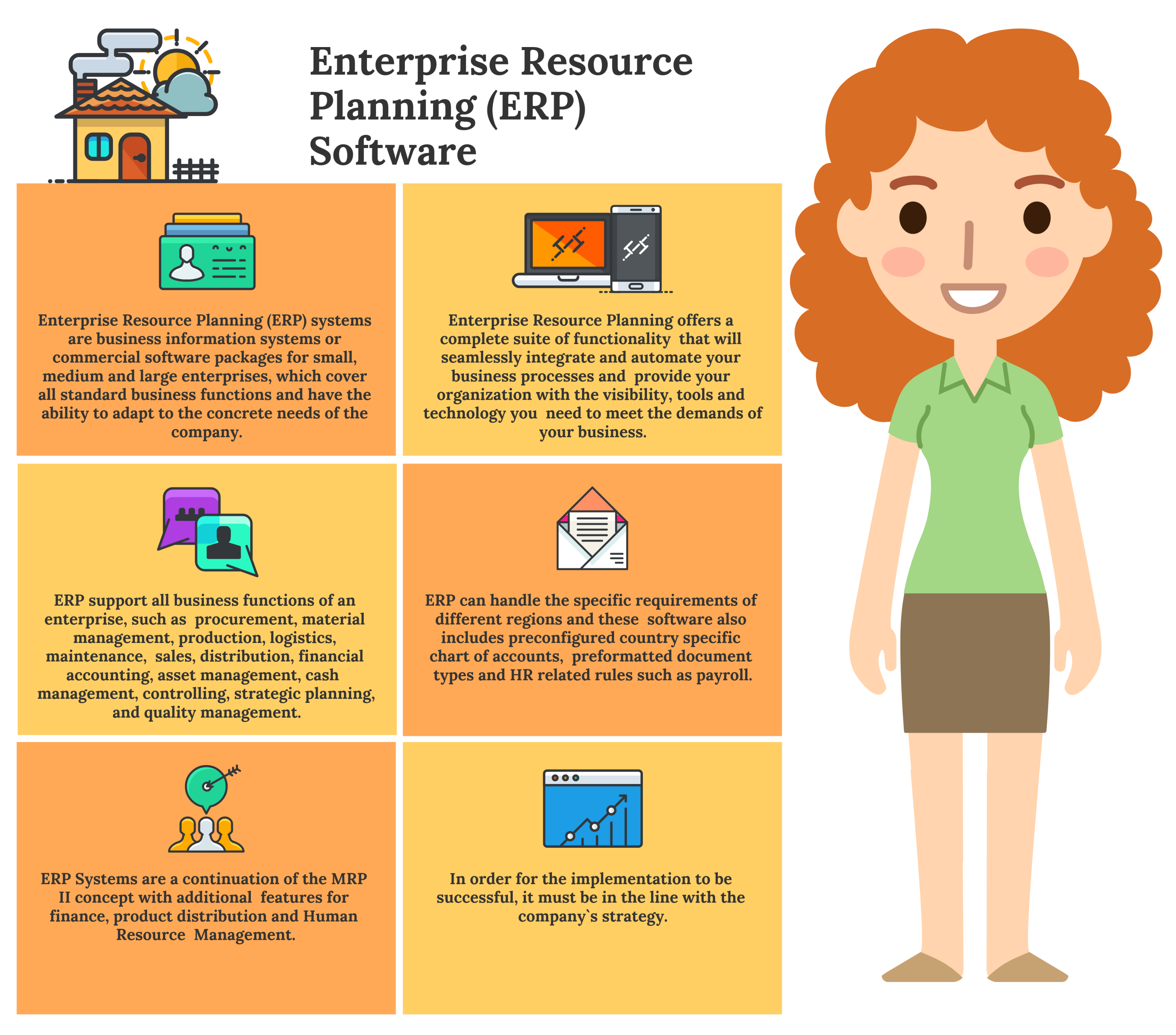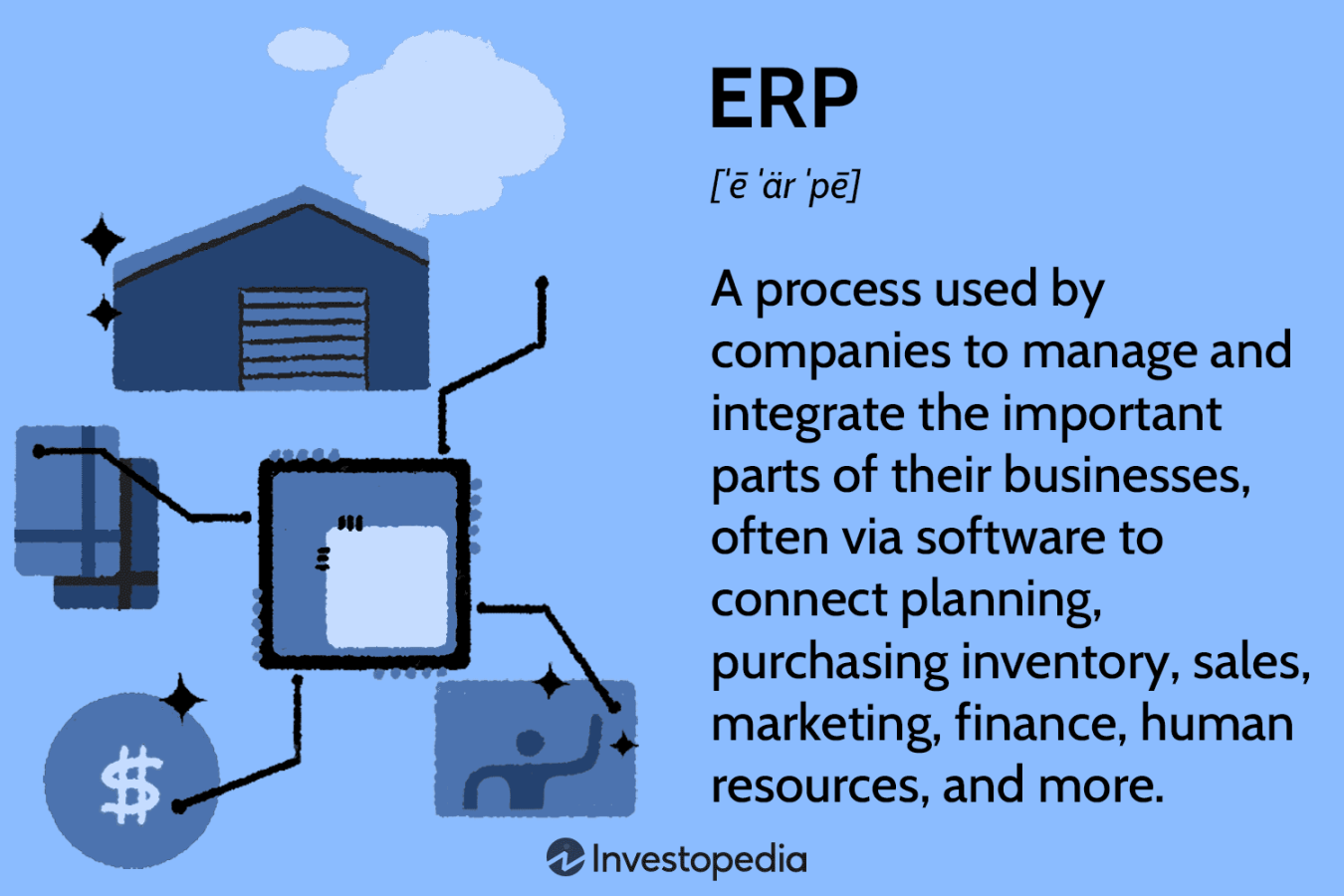In today’s competitive business landscape, streamlining operations and maximizing efficiency is crucial for success. This is where Enterprise Resource Planning (ERP) software comes in. ERP is a powerful suite of integrated applications that helps organizations manage and automate core business processes across various departments.
What Does ERP Software Do?

ERP software acts as a central nervous system for your organization, connecting and synchronizing critical functions like finance, accounting, human resources, supply chain management, customer relationship management (CRM), and more. This integrated approach eliminates data silos, ensures real-time information visibility, and empowers businesses to make data-driven decisions.
Benefits of ERP Software

The advantages of implementing an ERP system are numerous. Here are some key benefits:
- Improved Efficiency and Productivity: ERP automates manual tasks, reduces errors, and streamlines workflows, leading to significant gains in efficiency and productivity across the organization.
- Enhanced Visibility and Control: A centralized system provides a holistic view of all business operations, allowing for better informed decision-making, improved resource allocation, and proactive problem-solving.
- Strengthened Collaboration: ERP fosters collaboration by promoting seamless information flow and data sharing across departments. This breaks down communication barriers and empowers teams to work together more effectively.
- Increased Customer Satisfaction: ERP streamlines customer order processing, inventory management, and delivery schedules, ultimately enhancing customer satisfaction by ensuring timely and accurate order fulfillment.
- Reduced Costs: By automating tasks, minimizing errors, and optimizing resource allocation, ERP software can significantly reduce operational costs.
- Improved Compliance: ERP systems can help ensure adherence to industry regulations and internal policies by automating compliance checks and reporting processes.
- Enhanced Scalability and Adaptability: ERP systems are designed to scale with your business needs, allowing you to add new users, departments, and functionalities as your organization grows and adapts.
Different Types of ERP Software
There are various types of ERP software available to cater to the specific needs of different businesses. Here’s a breakdown of the most common types:
- On-Premise ERP: This traditional model involves installing and managing the ERP software on your own servers. It offers greater control and customization but requires significant upfront investment and IT infrastructure.
- Cloud-Based ERP: Cloud-based ERP systems are hosted by a third-party provider and accessed via the internet. This eliminates the need for on-site infrastructure, making it a cost-effective and scalable option for many businesses.
- Industry-Specific ERP: Tailored for specific industries, these ERP systems cater to the unique needs and processes of a particular sector, offering pre-configured functionalities and industry-compliant features.
Choosing the Right ERP Software
Selecting the right ERP software is critical for maximizing its benefits. Here are some key factors to consider:
- Business Needs and Size: Identify your specific business needs, processes, and future growth plans. Choose an ERP system that scales with your organization and addresses your core functional requirements.
- Budget: ERP software can range in cost depending on features, deployment model, and vendor. Determine your budget and be realistic about the ongoing maintenance and support costs.
- Vendor Reputation and Support: Choose a reputable vendor with a proven track record and a strong support infrastructure to ensure seamless implementation, training, and ongoing assistance.
- Scalability and Flexibility: Ensure the ERP system can adapt and grow with your business. Look for solutions that offer modular add-ons and functionalities that can be integrated as your needs evolve.